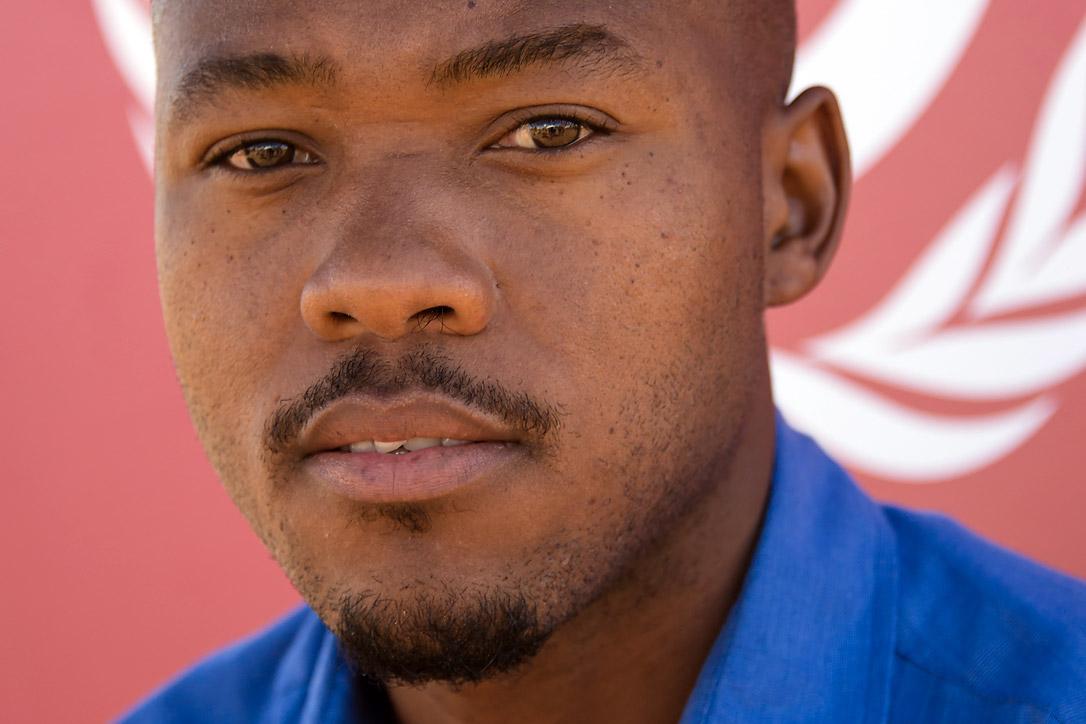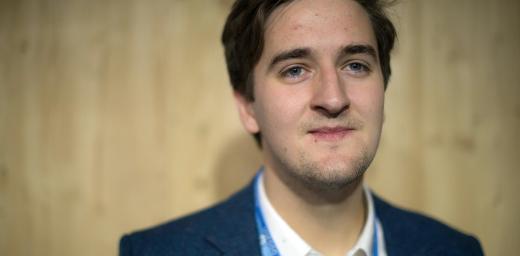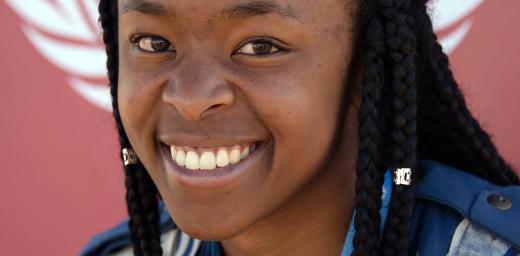Climate change and capacity building in developing countries

Theology student Khulekani Sizwe Magwasa. Photo: LWF/Ryan Rodrick Beiler
Although I am young in academia, participating in the COP 22 climate conference in Morocco in November 2016, was an opportunity to engage with the issue of climate change as part of the international community. Out of the several meetings and parallel side-events that took place in Marrakech, I followed one stream on capacity building in developing countries. I reflected on issues that are of concern to me when it comes to the actual implementation of the 2015 Paris Agreement, especially for local communities, which are more vulnerable to climate change.
For two consecutive days, meetings were held to finalize the wording and language of the proposed draft decision paper on capacity-building in developing countries. There were long consultations where some country delegates would express that they were not comfortable with the language, but there were no new mandates or obligations. The objective remained the same: that developed countries will assist developing countries in enhancing the capacities needed to mitigate and adapt to climate change.
From my perspective, capacity building should include building institutional capacity for which parties to the historic Paris agreement must ensure transparency, which is a big issue for many developing countries. Our governments should in fact ensure that capacity building is integrated in all public institutions. Education about climate change should be mainstreamed in our schooling systems from the basic levels. This approach can work, and a practical example is peer education, which has worked when it comes to tackling issues such as the HIV epidemic. A similar approach should be applied to climate change, as it goes beyond environmental issues. It should be included when discussing participation and gender equality, intergenerational justice and so forth.
Indeed, the Conference of the Parties to the 21 session (COP 21) of the Framework Convention on Climate Change called upon “all Parties to ensure that education, training and public awareness, as reflected in Article 6 of the Convention and in Article 12 of the Agreement are adequately considered in their contribution to capacity building.”
In addition, faith communities should make it easier for people to understand the issue of climate change and what we can possibly do to ensure climate justice. All of us are responsible for this, but more so the clergy, who should at least create the necessary platforms to facilitate response and action in places of worship and communities. The Paris Agreement should be made accessible to people of all walks of life.
To everyone; “Come now, let us reason together,” says the Lord (Isaiah 1:18a NIV).
Theology student Khulekani Sizwe Magwasa is active in the youth network of the Evangelical Lutheran Church in Southern Africa. The 25-year-old participated in COP 22 as a member of The Lutheran World Federation delegation.
Related links





